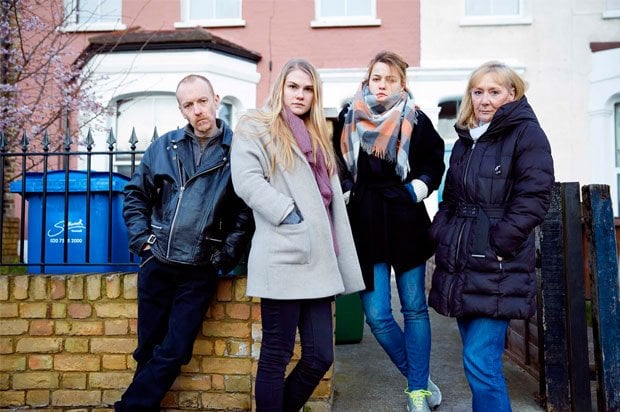Am I homeless?
Usually you have to be considered ‘legally homeless’ before you get help. But what does that mean? If you’re worried about your living situation, here’s how to tell if the council has to house you.

It's not always easy to tell if you're legally homeless or not
Am I legally homeless?
In legal terms, being homeless isn’t simply about whether you have somewhere to sleep. In England, Scotland and Wales, to be classed as legally homeless you’d have to fit into one or more of the council’s categories and situations.
If you meet the legal definition of homelessness, the council has to find you somewhere to live.
Maybe you don’t want to be seen as homeless, but you could miss out on help you’re entitled to.
Homelessness: the basics
If you’re homeless, you won’t have a suitable home in the UK or elsewhere, but that alone doesn’t always mean you’re legally homeless, though.
The council will check that you’re ‘unintentionally homeless’, meaning you didn’t choose to leave a suitable home where you could’ve stayed.
Whatever council you approach, you’ll need a connection to the local area. Depending on where you live, you could also have to show you’ve got a ‘priority need’ – although this no longer applies in Scotland.
Who has a priority need?
You automatically have a priority need if you’re in one of these situations:
- You have children: You’re currently pregnant or have at least one dependent child.
- Your home was destroyed: You’ve lost your home altogether, or can’t currently stay there because of fire, flood or other disaster.
- You’re under 18: Anyone under 16 or 17 has a priority need.
- You’re under 21: You qualify if you’re 18-20, have been in care at some point since your 16th birthday, and you’re not a student needing accommodation outside term time.
You could also claim you have a priority need if you’re vulnerable for one of these reasons:
- Illness or disability: You have a physical disability, a mental illness, a learning disability or a serious health problem.
- Violence or threats: You’ve left your home due to violence or threats of violence from people inside or outside your home, such as family members or neighbours.
- Other vulnerable situations: You’ve recently left care, custody or the armed forces.
I’ve got somewhere to stay, but…
“A lot of people think homelessness means sleeping on the streets,” says Amy Davies, National Housing Advisor for YMCA England. “You don’t have to reach that point to be entitled to help.”
Maybe you have somewhere to stay right now, but it’s not reasonable or possible for you to keep on living there.
You could be classed as homeless if you’re in one of these situations.
- It’s temporary: You might be staying on a friend’s sofa or in a hostel, refuge or B&B.
- You shouldn’t be there: You’re living somewhere without permission, such as a squat.
- It’s unfit: Your accommodation is damaging your health or you don’t have space to live with your immediate family.
- It’s unsafe: You’re currently experiencing or being threatened with violence or abuse.
- It’s too expensive: You’re struggling financially or your rent has gone up.
- It’s mobile: You live in a vehicle or houseboat and there’s nowhere you can park it.
Being threatened with homelessness
If you’re likely to become homeless in the next 28 days, the council should class you as being ‘threatened with homelessness’. You can approach them for help and advice before you have to move out.
However, don’t move out sooner and then ask for help. If you didn’t legally have to leave at that time, they could say you chose to make yourself homeless. Get advice before you leave, not after.
Are you intentionally homeless?
You may have intentionally made yourself homeless if you’ve left a suitable home, if you’re living with friends or family who are willing for you to stay, or you’re married or in a civil partnership with a tenant or home-owner.
If you choose to move out, the council could say they don’t have to house you. Hating your house, or the people in it, doesn’t mean you had to leave.
Get your head around intentional vs. unintentional homelessness with these examples:
Leaving your family home:
You’re not choosing to become homeless if you get kicked out or you’re leaving to escape from violence, abuse or threats.
However, if you want to leave because of annoying rules, or a relative who just gets on your nerves, you’re not being made homeless.
Breaking up:
Staying under the same roof after a break-up is hardly a dream houseshare, but it doesn’t automatically make your home unsuitable in the eyes of the law.
Unless your partner is abusive, threatens you or throws you out, or they’ve walked out and you can’t pay the rent by yourself, you’re not becoming unintentionally homeless if you leave.
Not paying your rent:
If you can’t afford to stay in your home unless you go without essentials like food, you’re not choosing homelessness. Its worth noting though that unfortunately, you may have to let the rent arrears build up and wait for your landlord to send you an eviction notice before you’re recognised as being ‘threatened with homelessness’. If you move out because you can’t afford the rent, you risk being seen as intentionally homeless.
But if you’ve just decided you fancy somewhere cheaper so you’ll have more spare cash, you can’t claim you’re being forced out.
Still not sure?
You can use Shelter’s emergency housing rights checker to see what help you qualify for in England or Scotland.
The law says everyone has the right to make a homeless application to the council. If they think you’re intentionally homeless, they’ll need to prove it – and they should look at your whole situation before making a decision.
Next Steps
- Shelter's advice website for young people offers help with housing problems and a free helpline 0808 800 4444. If you're in Scotland, use http://scotland.shelter.org.uk/ instead.
- Crisis helps single homeless people find somewhere to stay. Get help here
- Youth Legal offers free legal advice to young people aged 16-25 in the London area on issues concerning housing, homelessness, social care, debt and immigration. Get advice by calling 020 3195 1906 or emailing [email protected].
- Chat about this subject on our Discussion Boards.
By Anne Wollenberg
Updated on 29-Sep-2015
No featured article










